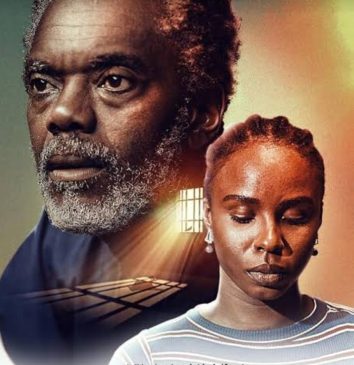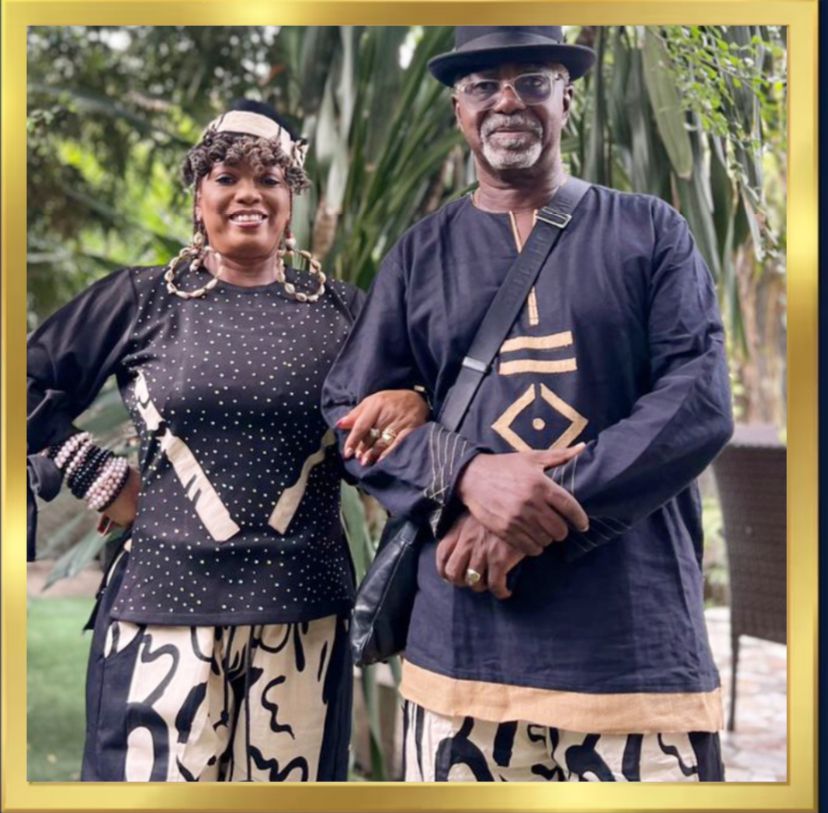By Agbo Favour Amarachi
PENANCE, the Nollywood movie is the story of a young corps(NYSC) member who is posted to the law firm of a man she secretly holds a deep grudge against. Determined to make him pay for his past wrongs, she carefully sets her plan in motion—a scheme that ultimately cost him his freedom and career.
Directed by Awal Abdulfatai, Penance is a gripping drama filled with twists, betrayals, and the debilitating consequences of revenge.
The movie tackles important societal themes but struggles to deliver them in a compelling way. From the very first scene, the film sets up an air of mystery, with camera work that almost tricks you into thinking you’re about to watch a horror movie. We’re quickly introduced to Alice Martin (Uzoamaka Onuoha) and her sister (Rachel Emem Isaac) in a peculiar manner, hinting at the weighty story to come. Unfortunately, as the film unfolds, it becomes clear that Penance struggles with its execution, making what should be a gripping drama about sexual assault feel disappointingly sluggish.
Uzoamaka Onuoha steps into the role of Alice, delivering a performance that, while commendable, lacked the level of persuasion needed for full immersion. She tried to bring authenticity to the character, but her initial encounter with Majek felt slightly off, as though something was missing in her reaction. However, her facial expressions were spot on for the role, even if the makeup worked against the film’s emotional depth.
Wale Ojo, on the other hand, was simply outstanding. The Director may have deliberately used Wale Ojo, knowing fully well that his face would draw attention to the movie. I must say it worked because his face on the poster made me see the movie, but I was disappointed. As expected, he delivered a stellar performance, embodying Majek with effortless precision.
Gregory Ojefua as Detective Festus Obosa literally ‘killed’ his role as the relentless detective, bringing just the right amount of irritation and tenacity to the character. His portrayal was so annoying that the mere mention of apple might evoke unexpected reactions after watching the film, his character should be the force driving the investigation forward, oscillating between moments of over-the-top intensity and indifference, making it hard to get a read on his character’s true motivation.
Nonso Bassey as Bobby, however, felt more like a fashion model than a lawyer. While visually striking, his presence occasionally downplayed the seriousness of the story.
Rachel Emem Isaac, playing Alice’s sister, infused the movie with the necessary tone and intensity, ensuring the emotional weight remained intact. Her performance provided balance and kept the narrative gripping.
Many of the characters lack depth, and their dialogue often feels unnatural. A prime example is a scene where Detective Obosa warns a suspect in an almost cartoonish way, only to laugh and admit he got the line from a movie. This sort of self-awareness might work in a lighter film, but in a serious drama about sexual assault and justice, it undermines the gravity of the situation.
The legal aspects of the film also leave much to be desired. The accused’s lawyer, played by Nonso Bassey, seems startlingly unfamiliar with his own client’s history, discovering past legal troubles alongside the audience rather than demonstrating the preparedness expected from a top defense attorney. Similarly, the survivor’s legal team, including her sister-lawyer Laila, often appears unsure of their footing, making it difficult to believe in their expertise. The way legal discussions unfold—particularly a scene where Laila and her colleague-friend casually debate the case in a living room, drowning the audience in legal jargon—feels more like a crash course in courtroom terminology than an organic conversation.
Technical aspects also hold the film back. The early London-based scenes suffer from noticeable sound issues, making dialogue difficult to follow. Additionally, when Nigerian films cast foreign actors, the performances can be hit or miss, and Penance falls into the latter category. The international actor’s delivery is stiff, making even the more lackluster local performances appear comparatively stronger.
The costume and makeup department did a poor job of capturing the emotional depth of the story. Alice’s makeup should have reflected someone deeply shaken by trauma, yet she appeared as though she had already moved on. This misstep inadvertently gave away a crucial plot twist, making it clear that she wasn’t struggling with the aftermath of the incident. The attempted suicide scene also lacked the raw intensity it needed to feel authentic. And the supposed forensic team? That lab coat was hardly convincing. The lack of attention to detail in these areas made it difficult to fully immerse myself in the story. One moment that did stand out was the lights-off sequence, which added some much-needed cinematic tension—but that was about as good as it got visual.
Perhaps the most controversial aspect of Penance is its ending as parts of the story still felt implausible. The closing scene seemed incomplete. The lawyer’s dismissal was abrupt, and Alice’s sister’s failure to pursue the case she uncovered left too many unanswered questions. While the film delivered a powerful message, it also raised a critical dilemma—should Alice have been arrested for her actions?
The film reveals that Alice was not actually raped but sought to destroy the accused as revenge for something he did to her former roommate. While stories about false accusations exist, this twist is bound to be divisive, as it shifts the focus away from the very real issue of sexual assault and instead leans into a narrative that could be perceived as undermining victims’ experiences. In a time when online discourse around false allegations is already heated, Penance risks feeding into that fire rather than offering a nuanced perspective.
Despite its shortcomings, Penance does highlight some important themes—justice, power dynamics, and the long-lasting impact of past actions. However, the way these themes are handled prevents the film from making the impact it should have.




